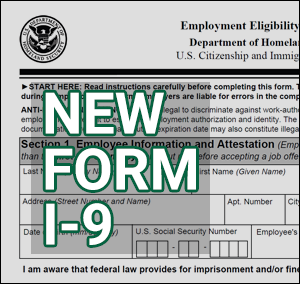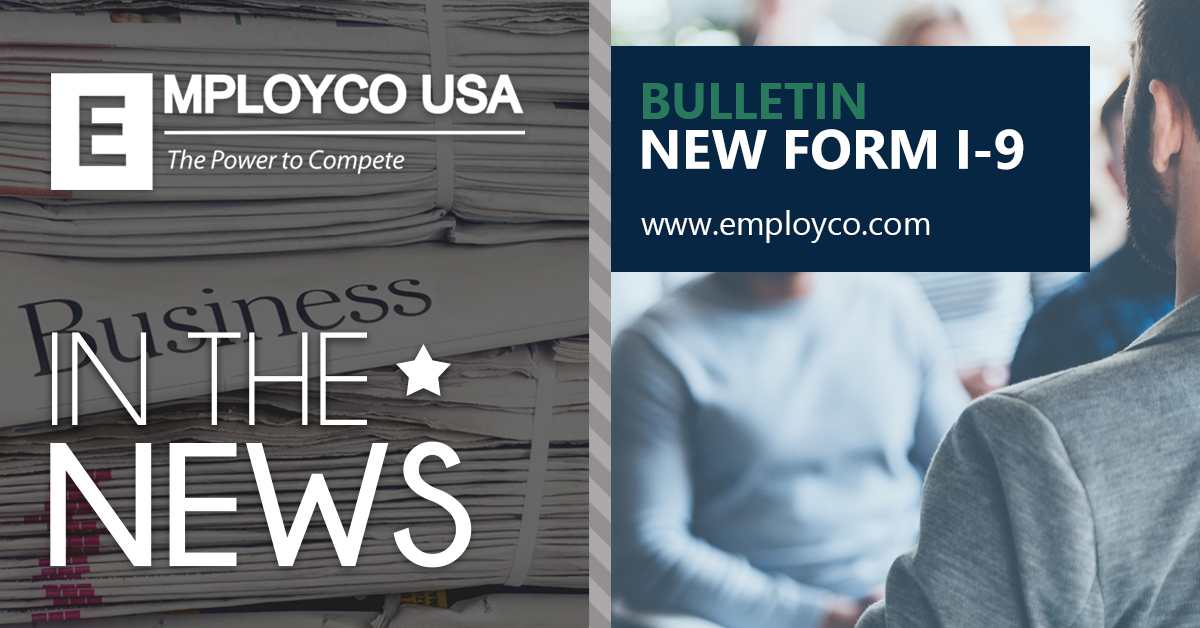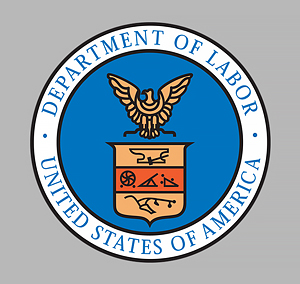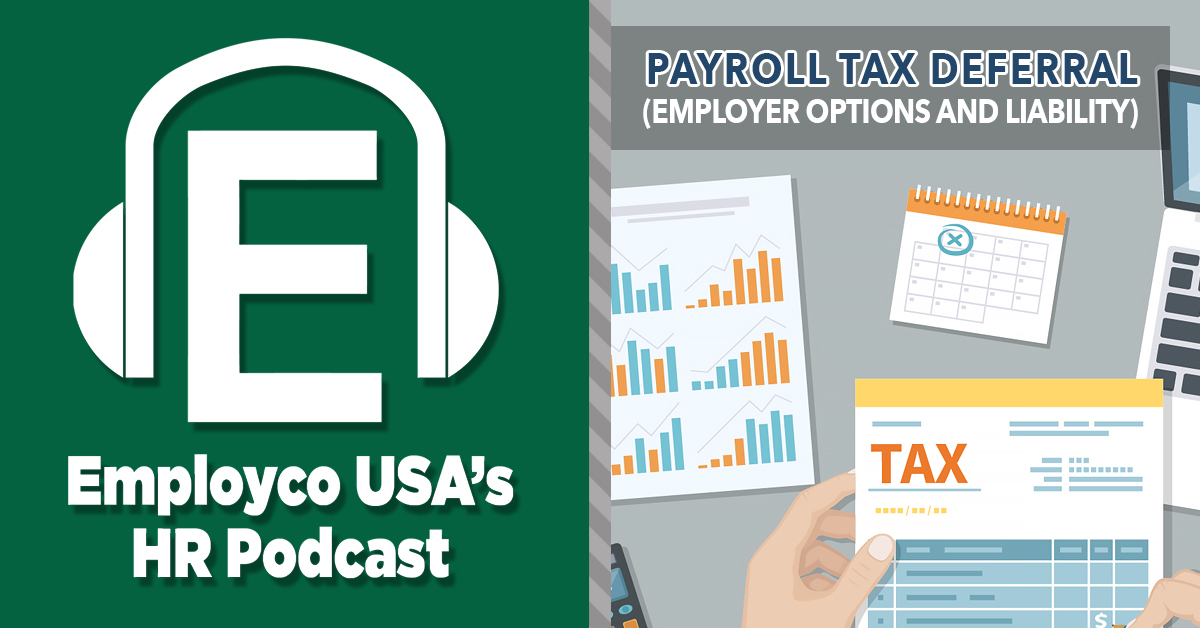In the world of business, time is money, and efficiency is key. One area where this rings particularly true is payroll management. In this comprehensive guide, we’ll delve into the intricate world of payroll outsourcing, demonstrating how it can be a game-changer for businesses seeking to streamline their operations.
Continue readingPayroll Administration
Employco Payroll Services Overview
At Employco, we provide customized solutions to businesses across the entire country.
In this video, Gerri LeCompte (Vice President of Payroll Services) will walk you through what makes Employco’s payroll processing unique. “Our clients are really the driver of our process. We don’t make them fit into a mold.”
For more information feel free to reach out to us directly, we’d love to be a resource for your business.
What Raising the Minimum Wage Could Mean for the Hospitality Industry
Employment trends expert explains why increasing the min. wage could have a negative impact on workers
 With Inauguration Day upon us, many people are looking ahead at the first steps President-elect Joe Biden plans to take when he gets into office. One of his first major proposals (which Biden introduced last Thursday in his $1.9 trillion relief package) will be to increase the federal minimum wage from $7.25 to $15.
With Inauguration Day upon us, many people are looking ahead at the first steps President-elect Joe Biden plans to take when he gets into office. One of his first major proposals (which Biden introduced last Thursday in his $1.9 trillion relief package) will be to increase the federal minimum wage from $7.25 to $15.
However, this proposal to dramatically increase the minimum wage is receiving pushback from critics who say this could spell the end for struggling small businesses who are already struggling to stay afloat during the COVID-19 pandemic.
“Asking small business owners to begin paying their employees $15 an hour will be a hardship that could break many companies,” says employment trends expert Rob Wilson, President of Employco USA, an employment solutions firm with locations across the country.
Wilson says that the minimum wage hike will also lead to more job loss as business owners continue to invest in automation over workers.
Podcast: Payroll Tax Deferral (Employer Options and Liability)
Rob, Scott, and Jason discuss payroll tax deferral (employer options and liability), including: what happens if an employee leaves, what large companies are doing, employer options, and more.
Contact us with any questions you may have, we’re here to help: hr@employco.com
Payroll Tax Holiday Starts Today: Here’s What it Means for Employers
Human resources expert comments on President Trump’s newly implemented tax break
 Starting today (Sept. 1), employers now have the option to stop withholding payroll taxes for their staff. The Treasury Department announced the option last week, detailing the new guidelines in a statement that offers a temporary deferral of the payroll taxes which employees pay into Social Security.
Starting today (Sept. 1), employers now have the option to stop withholding payroll taxes for their staff. The Treasury Department announced the option last week, detailing the new guidelines in a statement that offers a temporary deferral of the payroll taxes which employees pay into Social Security.
“Employers can opt to stop withholding payroll tax, provided an employee makes less than $4,000 on a biweekly pay period,” says Rob Wilson, President of Employco USA and human resources expert. “But this is only a deferral. Workers will need to repay the taxes by April 2021.”
Generally, employees and employers each pay 6.2% tax into Social Security, for a total amount of 12.4% per employee. However, under Pres. Trump’s new deferral, employers will have the option of not collecting the employee’s share. As a result, workers could see a bump in their paycheck – but next year, they will have to pay that money back or face financial penalties.
Wilson, who is the president of a national employment solutions firm, says that this will spell a major human resources headache for employers.
Paycheck Protection Program (PPP) Loans

BULLETIN
April 01, 2020 (UPDATE)

On Tuesday, March 31, the Department of the Treasury released information and documents related to the high profile Paycheck Protection Program (PPP) loans covered under the CARES Act. Included in the release:
Starting April 3, 2020, small businesses and sole proprietorships can apply.
Starting April 10, 2020, independent contractors and self-employed individuals can apply.
You may want to apply as quickly as you can because there is a funding cap.
You can apply through any existing SBA lender or through any federally insured depository institution, federally insured credit union, and Farm Credit System institution that is participating. Other regulated lenders will be available to make these loans once they are approved and enrolled in the program. You should consult with your local lender as to whether it is participating.
What Employers Need to Know About the New I-9 Forms
Employment expert weighs in on changes to employment authorization forms
 The U.S. Citizenship and Immigration Services (USCIS) just published a new Form I-9 for employers to begin using immediately. The Form I-9, which is used to verify new hires’ identity and employment authorization to work in the United States, now includes several changes.
The U.S. Citizenship and Immigration Services (USCIS) just published a new Form I-9 for employers to begin using immediately. The Form I-9, which is used to verify new hires’ identity and employment authorization to work in the United States, now includes several changes.
“Employers can continue using the prior version until April 30, 2020. Starting in May, employers will be required to use the new form (expiration date of 10/31/2022) exclusively,” says Rob Wilson, President of Employco USA, a national employment solutions firm.
The new I-9 forms include changes to who can act as an authorized representative on behalf of an employer, explains the human resources expert, along with clarifications to acceptable documents as well as an updated DHS Privacy Notice.
The human resources expert says that employees who have properly filled out I-9 forms in the past do not need to submit new forms to their employer.
For more on this topic, please contact Rob Wilson at rwilson@thewilsoncompanies.com.
Breaking News: New Form I-9
The U.S. Citizenship and Immigration Services (USCIS) published a new Form I-9 for employers to begin using immediately. The new version includes minor changes to the form and instructions.
The Form I-9 is used to verify new hires’ identity and employment authorization to work in the United States.
Employers can continue using the prior version (expiration date of 08/31/2019 shown in the upper-right corner) until April 30, 2020. Starting in May, employers will be required to use the new form (expiration date of 10/31/2022) exclusively.
Over the next several days, we will provide our clients with an updated new hire packet including the new Form I-9.
Please contact us if you have any questions.

New Year, New Paycheck: Minimum Wage Set to Increase Across the Country
Employment expert weighs in on what to expect when 2020 starts
 With the New Year just weeks away, employers need to start considering upcoming changes to minimum wage law that will become effective on Jan. 1, 2020. Several states, including Illinois, Arizona, Colorado, and Florida are seeing minimum wage hikes.
With the New Year just weeks away, employers need to start considering upcoming changes to minimum wage law that will become effective on Jan. 1, 2020. Several states, including Illinois, Arizona, Colorado, and Florida are seeing minimum wage hikes.
“This is just the beginning of minimum wage increases,” says employment expert Rob Wilson, President of Employco USA, a national employment solutions firm with locations across the country. “For example, starting on Jan. 1, the Illinois minimum wage will increase from $8.25 to $9.25, but come June, that will increase to $10. The goal is to gradually increase minimum wage by $1 each year, until 2025, when it will hit $15 an hour.”
Wilson also notes that in July, Chicago employers (within the city limits) will need to start providing predictability pay whenever they ask a worker to change their schedule.
What the New Overtime Ruling Means for Employers
Employment expert explains the recent DOL decision
 The U.S. Department of Labor’s recent decision on overtime extends to 1.3 million U.S. workers. The number is much lower than what the Obama administration tried to accomplish during President Obama’s tenure in office.
The U.S. Department of Labor’s recent decision on overtime extends to 1.3 million U.S. workers. The number is much lower than what the Obama administration tried to accomplish during President Obama’s tenure in office.
“Since 2016 when President Obama signed an overtime law which made employees who earned less than $47,000 a year eligible for compensation, many small business owners were fearful that they would not be able to keep pace with new requirements for overtime compensation. When a Texas judge blocked that ruling, it offered a small reprieve until President Trump took office,” says Rob Wilson, President of Employco USA and employment compensation expert.
In the following years, both Republicans and Democrats have struggled to agree on an overtime solution, until revealing their new decision last week.
Previously, workers were automatically entitled to overtime pay only if they earned $23,660 or less a year, says Wilson. But, starting on Jan. 1, 2020, that salary ceiling will be raised to $35,568.
